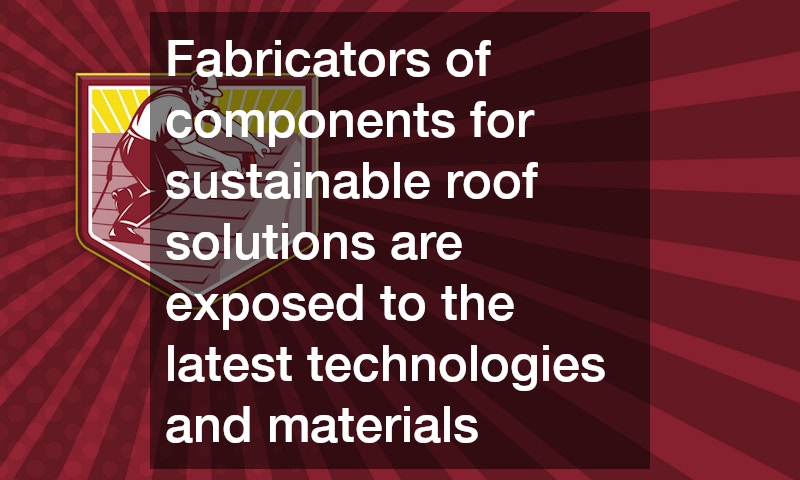In today’s industry, which is rapidly changing, fabrication jobs are essential. Fabricators are at the forefront of development projects as the need for skilled craftsmanship increases. They have a variety of roles available to them, depending on their skills and expertise.
This article will explore the growing demand for fabrication work, examine specific niches in the industry, and highlight the impact advanced technologies have on the trade. We will cover everything from welding classes to robot fabrication to make fabrication a lucrative profession.
Fabrication is a dynamic industry, and professionals must adapt to changing technologies and construction requirements. The people who are able to master their craft, and keep up with the latest industry trends and technologies will have a competitive advantage and greater job security. Anyone considering a career in fabrication should explore and understand the current state of jobs.
Why Skilled Fabricators Are More Important Than Ever
Due to technological advances and an increase in construction, the demand for skilled fabricators is on the rise. Professionals who are able to execute complex metal fabrications and contribute to innovative solutions in construction are increasingly needed. Fabrication jobs are in high demand on the job market today.
The boom in infrastructure construction, especially in urban areas, has increased the demand for fabrication workers. Fabricators are essential to projects ranging from the construction of skyscrapers and residential homes. Demand is driven not only by the number of projects but also by the complexity of modern construction requirements.
In addition, the construction industry is increasingly focused on sustainability and eco-friendly materials and methods. Metal fabricators are able to reduce the carbon footprint by producing components such as metal siding or rebar fabrication. Fabricators with experience and efficiency are in high demand as industries continue to prioritize these values.
Open New Doors with Welding Classes

The world of fabrication is full of career opportunities that can be accessed through a welding course. These classes offer students hands-on training, allowing them to learn the necessary skills and techniques for the industry. Welding skills are in high demand, especially for metal fabrication projects.
The classes teach MIG, stick, and TIG welding techniques, giving future fabricators a wide range of skills. Fabricators who master these techniques can tackle a variety of projects, such as custom wrought iron gate fabrications and complex metal fabrications. Welding is a valuable skill that can enhance your career prospects.
Welding classes are often focused on safety and the use of advanced equipment. Modern fabrication tasks require mastery of CNC equipment and robotic fabrication. Completing welding classes not only increases the fabricator’s skill set but also their confidence in executing complex projects efficiently and safely.
Discover Niche Opportunities in Custom Fabrication
Fabricators with a good level of expertise can find lucrative niches in the market for custom gates. Residential and commercial properties are in high demand for custom wrought iron gate designs that combine aesthetics with durability. These custom projects showcase the craftsmanship of fabricators.
Professionals can showcase their creativity and technical expertise through custom fabrication. In order to create designs that are tailored to specific client requirements, attention, precision, and innovation are essential. Fabricators who can personalize their projects stand out in a competitive marketplace, offering a unique value proposition for potential clients.
Fabricators can extend their services to include other metal structures by partnering with metal siding contractors. Professionals in this niche are able to capture a significant share of the market by leveraging their diverse skill sets and providing comprehensive fabrication solutions. Specialization in custom work not only leads to higher salaries, but also a more fulfilling career.
The Essential Role of Metal Contractors
Metal contractors are essential to the construction and fabrication industries. Metal contractors’ expertise in metal fabrications such as frames and supports structures is essential for modern construction projects. They also work closely with builders and architects to ensure metal components comply with the necessary specifications and regulations.
Metal roofing contractors who work with fabricators are at the forefront of sustainable and sophisticated building practices. Metal roofing is a durable and environmentally friendly solution that developers who are concerned about the environment appreciate. Metal contractors have the skills and expertise to provide high-quality installations.
Fabricators and contractors working together results in a seamless execution of projects. Contractors need fabricators that can quickly adapt to new challenges and create designs despite the complexity of projects. This symbiotic partnership helps to maintain the competitive advantage needed in today’s highly competitive fabrication industry.
Embrace a Future in Sustainable Roofing Fabrication

Metal roofing and fabrication jobs have increased in demand due to the shift towards sustainable construction practices. Metal roofing is energy-efficient, durable, recyclable and recyclable. It’s a great option for modern construction. Metal fabricators are in a good position to help with these innovative projects because of the demand for eco-friendly products.
Fabricators of components for sustainable roof solutions are exposed to the latest technologies and materials. Combining fabrication skills with in-depth knowledge of metal roofing systems allows them to create superior products. Sustainability is not only in line with consumer demands, but also industry standards.
Many contractors are eager to hire fabricators with a wealth of experience. As the demand for eco-friendly products and solutions increases, those who are experts in this field will likely see their job security and advancement increase. Fabrication jobs in this field offer exciting prospects for the environmentally-minded professional looking to make an impact.
Outdoor Structure Fabrication: A Growing Niche
Outdoor structures are becoming a popular addition for both commercial and residential properties. This has created new opportunities for fabrication work. Fabrication professionals are needed to create structures such as storage sheds, outdoor recreation facilities, and pergolas. Fabricators are faced with a challenging task because of the wide range of creativity and customization available in this area.
Fabricators who work on outdoor structures need to be versatile and flexible since materials and design preferences are often different. In order to produce high-quality products and meet customer expectations, it is important that you are proficient in the use of CNC equipment and welding. Fabricators can also use their experience in heavy equipment repairs to improve their problem-solving abilities during construction.
Fabrication jobs in this sector are expected to increase as the market for outdoor structures grows. Professionals who are able to offer innovative solutions and unique designs will gain an advantage. Fabricators who want to advance their careers in the construction sector can take advantage of this dynamic opportunity by building outdoor structures.
How Advanced Technology is Shaping Fabrication Jobs
The use of advanced technology has changed the way fabrication is done, with greater precision, efficiency and innovation. Many manual processes have been replaced by CNC equipment, which has streamlined production and allowed fabricators to concentrate on more complex tasks. Fabricators can now manage large projects with less resources thanks to this technological shift.
The industry has been further shaped by the introduction of robotics into fabrication. Robotic fabrication techniques enable automated, consistent work, which increases both productivity and safety. These advances not only change the way fabricators work but also expand their scope of projects.
Fabricators who want to thrive in a tech-driven world must constantly update their skill sets and embrace technology as a growth enabler. Fabricators who are successful have the ability to use advanced machinery and comprehend software-driven processes. Technology-driven jobs in modern fabrication offer many exciting opportunities for those who are willing to embrace it.
Robotics: The Future of Fabrication
Robotics redefines what is possible in fabrication by focusing on precision, safety, and speed. The integration of robotics is becoming more important as fabrication jobs change. This transforms traditional manufacturing into high-tech. Fabricators will need to be able to use both traditional skills as well as modern technology.
Robotic fabrication allows for the creation of intricate designs that are difficult to produce manually. This new technology opens up creative possibilities, allowing fabricators the opportunity to work on intricate projects that were previously impossible. Fabricators can gain a competitive advantage by embracing this new technology.
The demand for skilled fabricators who are familiar with robotic systems will increase as the adoption of these systems grows. The training in robotics and automatization not only enhances job satisfaction and security but also ensures that careers are relevant. These developments show the evolution of manufacturing jobs and the importance of continuing education and skill diversification.
Transitioning Skills from Heavy Equipment Repair to Fabrication
Those who transition from the repair of heavy equipment to fabrication will bring with them valuable skills. Understanding fabrication processes is easier when you have experience with complex machinery and systems. The skills gained in repair roles can be transferred to tasks such as building metal structures or operating CNC equipment.
Fabricators who have experience in heavy machinery repair are often better at problem-solving and can provide high-quality work. They can use their expertise to solve problems during fabrication and reduce time and resources wasted. The mechanical knowledge of their team is particularly useful when working on projects with multiple facets.
For this to happen, it is important that you develop specific skills like robotic fabrication or welding. Repair professionals who receive additional training can adapt to new fabrication demands, allowing them to explore more opportunities in the industry. These professions share many similarities, which can make a smooth transition and provide significant growth potential.
Mastering Structural Fabrication Techniques
To achieve robust and durable constructions, structural fabrication requires the mastery of a few essential techniques. The success of a project is largely determined by techniques such as cutting, welding and shaping. Fabricators with expertise in these fields are crucial in ensuring structural components meet quality and safety standards.
Rebar fabrication requires precision to create strong and stable structures. Rebar that is correctly fabricated ensures structural integrity and is vital for high-rise structures and large-scale infrastructure. Fabricators must be able to read detailed blueprints, and match their work to the project specifications.
Fabricators who are proficient in advanced technologies will be increasingly needed as construction projects become more complex. Professionals who are proficient in the use of CNC machines and robotic fabrication can handle complex designs and increase project efficiency. The fundamentals of structural fabrication are the foundation for career advancement, but learning and adapting to new technologies is key.
Diverse Career Paths in Fabrication: A Broader Perspective
Fabrication offers many career options that cater to a wide range of interests and skill sets. Opportunities abound in the fabrication industry, from large-scale infrastructure to custom metal fabrications. Fabricators can tailor their careers to their passions by choosing a niche that offers unique challenges and rewards.
The ability to move between different fields of fabrication is supported by skills that overlap and professional development. Classes in welding, for instance, can provide basic competencies that can be applied across many sectors. The ability to be versatile and adaptable can open doors for many fabrication jobs. This will enhance your long-term employment prospects.
Fabricators can maximize their career potential by gaining a broad industry perspective. Professionals can become leaders in their field by exploring new niches and staying abreast of technological advances and market trends. In the dynamic field of fabrication, multiple career paths are possible and encouraged.
Fabrication Skills: A Versatile Asset Across Industries
Fabrication skills can be applied in a wide range of industries and environments. Fabricators can use their skills to create metal housing components, artistic sculptures, or even build architectural elements. Their adaptability makes fabricators valuable assets for a wide range of fields, from automotive manufacturing to architecture.
Many fabrication jobs require the ability to use diverse materials and techniques. Metalworking, welding, and advanced machinery are essential for a variety of tasks, including creating custom structures or performing repairs on heavy equipment. Fabrication skills are unmatched in their versatility, with so many potential applications.
This flexibility broadens job opportunities and ensures that a career is filled with diverse experience. The demand for fabricators is expected to continue growing as technology and industries progress. Fabrication expertise is relevant because of its ability to adapt and use skills in creative ways across industries.
Adapting to an Evolving Job Landscape in Fabrication
Job opportunities for fabrication professionals are changing rapidly due to technological advances and market changes. Modern fabrication jobs demand a combination of traditional craftsmanship and new techniques. Professionals who are able to bridge this gap will thrive in a dynamic environment.
For a company to remain competitive, it is important to invest in ongoing education and skills enhancement. For the industry to remain relevant, welding classes, robotic fabrication and CNC training are essential. These skills improve employability and open doors to specialized careers, leadership roles, and specialized career pathways.
As the landscape changes, new challenges arise. For example, balancing productivity with sustainability. Fabricators need to innovate and adapt in order to meet these challenges while also aligning their work according to industry standards. Market trends and technological advances provide a road map for success. This ensures a bright future for skilled fabrication professionals.
The job market today offers a wide range of exciting and varied opportunities. Technological advancements and an increasing emphasis on sustainability are driving the demand for skilled fabricators. Professionals can excel in the dynamic welding industry with advanced training and weld classes.
Fabricators can specialize by exploring niches such as custom gates, metal roofs, and outdoor structures. They can also capitalize on new trends. Modern fabrication jobs require a high level of technical proficiency. The use of CNC and robotics equipment is a good example. Adaptability and continual learning are essential for career longevity as the job landscape changes.
Fabrication professionals who embrace technology and continually enhance their skills can look forward to an exciting future. Fabrication skills are relevant across all industries and provide a rewarding career. Fabricators who are committed to quality and innovation will continue to influence the future of manufacturing and construction.
